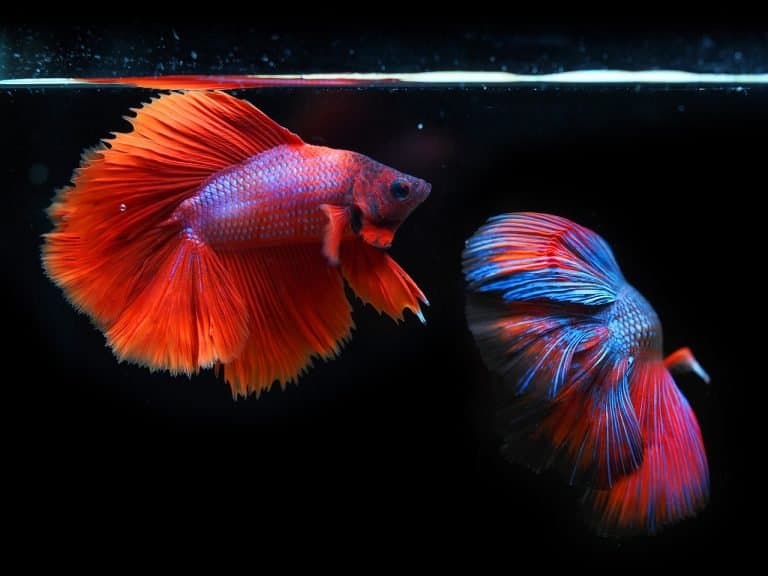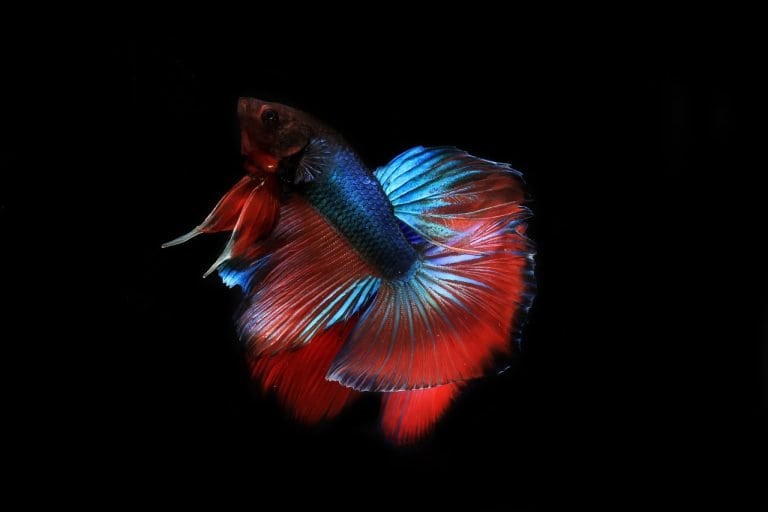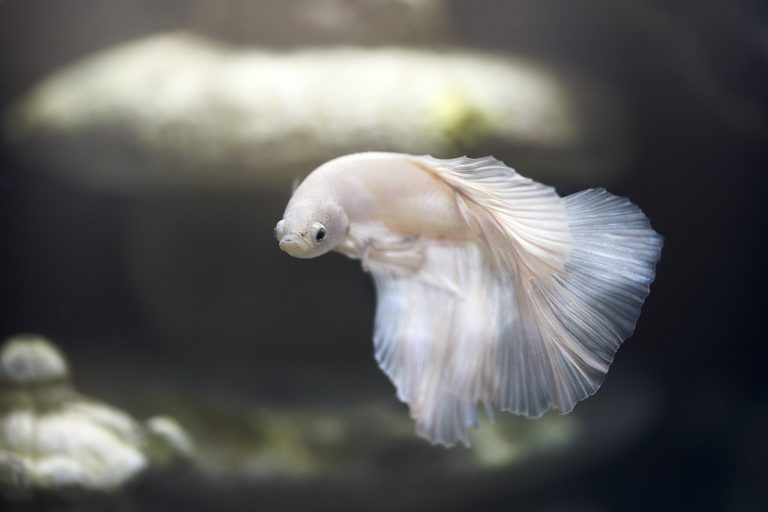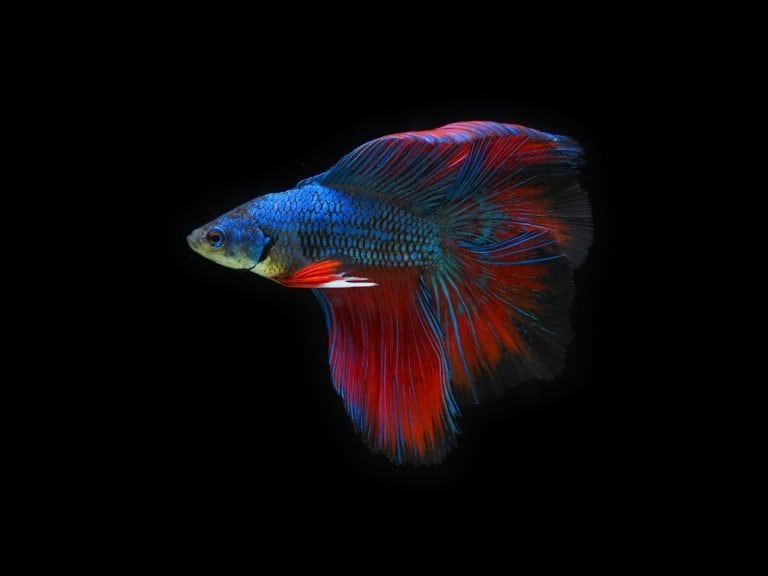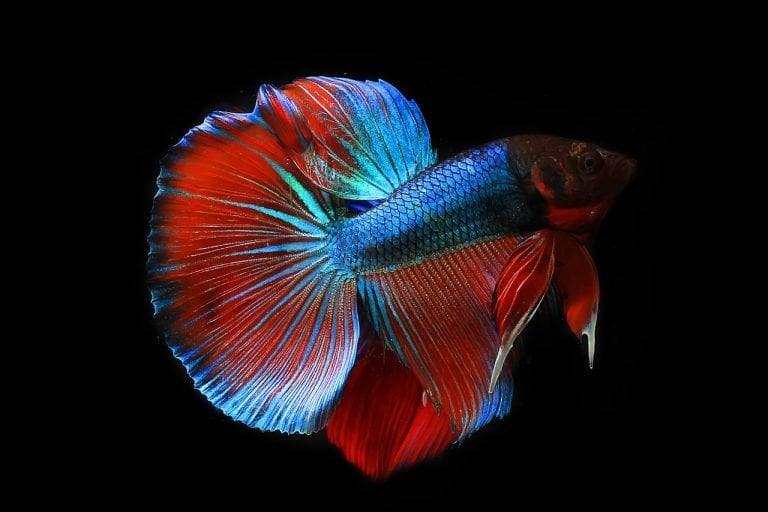Observe the fascinating behavior of betta fish, and you may notice a concerning habit – tail biting. This destructive behavior could be a sign of stress in betta fish, and identifying the cause is crucial for their well-being.
In this informative blog post, readers will learn about the potential reasons behind tail biting in betta fish, as well as strategies to prevent and address this issue. For a comprehensive guide on betta tail biting, check out Betta Tail Biting (What To Do & How To Prevent It).
Key Takeaways:
- Tail biting in Betta fish can be a sign of stress or boredom, but it is not always indicative of a problem.
- If a Betta fish is exhibiting tail biting behavior, it is important to assess its environment and mental stimulation to ensure it is receiving adequate care.
- Providing enrichment activities and a well-maintained tank setup can help reduce the likelihood of Betta fish experiencing stress and engaging in tail biting behavior.
Understanding Tail Biting Behavior
Any Betta fish owner who has witnessed tail biting behavior in their fish knows how distressing it can be. Tail biting, also known as fin nipping or fin rot, is a common behavior among Betta fish that can be caused by a variety of factors.
Understanding the reasons behind this behavior is essential for addressing it effectively and ensuring the overall well-being of the fish. By delving into the root causes of tail biting, Betta fish owners can take proactive measures to prevent this behavior and promote a healthy environment for their beloved pets.
Recognizing Tail Biting in Betta Fish
Recognizing tail biting behavior in Betta fish is crucial for addressing it promptly and effectively. Signs of tail biting include the gradual deterioration of the fish’s fins, resulting in a ragged or uneven appearance. Additionally, the fish may exhibit erratic swimming patterns or spend increased time hiding in its shelter.
By closely observing these behaviors, Betta fish owners can identify this issue and take the necessary steps to address it.
Common Reasons for Tail Biting
There are several common reasons why Betta fish may engage in tail biting behavior. One of the primary reasons is stress, which can be caused by a multitude of factors such as inadequate tank size, poor water quality, or aggressive tank mates. Another common reason for tail biting is boredom, as Betta fish require mental stimulation and enrichment to prevent them from engaging in destructive behavior.
Additionally, underlying health issues such as fin rot or parasites can lead to tail biting as the fish attempts to alleviate discomfort. Understanding these common triggers for tail biting is essential for mitigating the behavior and promoting the well-being of the fish.
Stress as a Trigger for Tail Biting in Betta Fish
Assuming a peaceful and stress-free environment, betta fish are typically vibrant and active. However, stress can trigger various behaviors in betta fish, including tail biting. When a betta fish feels stressed, it may resort to tail-biting as a coping mechanism. Understanding the link between stress and tail biting is crucial for betta fish owners to provide appropriate care and prevent this harmful behavior.
Correlation Between Tail Biting and Stress Levels
There is a strong correlation between stress levels and tail biting in betta fish. When a betta fish feels stressed, it may become agitated and anxious, leading to tail-biting behavior. Factors such as overcrowded tanks, poor water quality, inadequate space, and aggressive tank mates can all contribute to heightened stress levels in betta fish, triggering tail-biting episodes.
Signs and Symptoms of Stress in Betta Fish
Betta fish exhibit various signs and symptoms when experiencing stress. These may include lethargy, loss of appetite, fin deterioration, erratic swimming patterns, and paler coloration. It’s crucial for betta fish owners to recognize these signs and address the underlying causes of stress to prevent tail biting and ensure their betta’s well-being.
Managing and Preventing Stress-induced Tail Biting
To effectively manage and prevent stress-induced tail biting in betta fish, it is crucial for fish enthusiasts to understand the various strategies that can be implemented to reduce stress in their pet fish. By addressing the root causes of stress and employing preventative measures, fish owners can help to minimize the occurrence of tail biting and promote the overall well-being of their bettas.
Strategies to Reduce Stress in Betta Fish
One of the key strategies to reduce stress in betta fish is to ensure that they are housed in an appropriate environment. This includes providing ample space, appropriate water quality, and suitable tank decorations. Additionally, it is important to maintain a consistent feeding schedule and to avoid overstocking the tank with fish or other tank mates. Ensuring that the tank is placed in a quiet area with minimal disturbances can also help to reduce stress in bettas.
Recommended Measures to Prevent Tail Biting
When it comes to preventing tail biting in betta fish, several measures can be taken. Providing a well-balanced diet and ensuring that the fish is not underfed can help to minimize stress-induced behavior. Additionally, incorporating enrichment activities such as the introduction of live plants, hiding spots, and occasional tank rearrangements can help to reduce boredom and minimize the likelihood of tail biting. It is also important to monitor the fish for any signs of illness or discomfort, as addressing any underlying health issues can help to prevent stress-induced behaviors.
Conclusion
So, it is clear that tail biting among betta fish is indeed a sign of stress. Through the evidence of studies and observations, it is evident that betta fish may resort to tail biting as a coping mechanism when experiencing stress in their environment. Betta fish owners need to take measures to alleviate stress in their fish to prevent tail biting and maintain the overall health and well-being of their pets.
